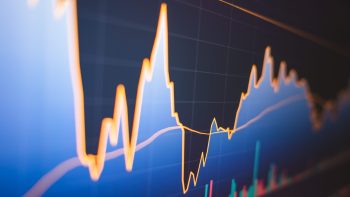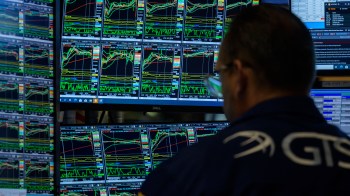Summer School: GDP
TESS VIGELAND: Ah yes, that may be true. But here at Marketplace Money, summer school is in session.
Before we crack the book in today’s lesson, let’s get ready with some brain fuel.
[SOUND: Food-related montage]
Mmmm, ratatouille. Well in this week’s class, we find out there’s one financial term that has a lot in common with food: GDP. The latest figures out this week show it grew by 3.4 percent in the second quarter.
What is GDP? At the blackboard this week: Economist Diane Swonk.
DIANE SWONK: Gross Domestic Product. It’s everything that we consume in the economy, plus everything that businesses invest in the economy, plus everything the government spends on the economy — and then we net out things that we export and then subtract away things we import, because it’s domestic products.
Although it’s a concept that’s pretty base, it really falls short in understanding a knowledge-based economy — ’cause it was designed when mostly, we produced products. Not thoughts.
Almost all other economic indicators somehow influence GDP. You know, all the ingredients of GDP are all the economic indicators that we can possibly collect on the economy. And then the GDP factor is the, you know, stew that comes out when you’re all done putting all those ingredients together. Some things have more important, some things are seasoning. But clearly, really important things is how much employment do we have in the U.S.? How productive are we? That’s implicit in the GDP figures as well.
What GDP really misses is the layers of the economy, the micro versus the macro side. And that’s the bifurcation of the U.S. consumer. We’ve seen this massive, rapid growth. Not only are the rich getting richer, there’s more of ’em. That’s good, there’s nothing wrong with that, but the problem is the middle class, many of ’em are falling out of the middle class into lower-income stratus, or they’re falling down in stratus within the middle class. And none of that is understood by just looking at the overall GDP figure on its own. And I think one of the greatest mistakes that people do is they look it and they say, foreigners say, “We don’t get it — your numbers look so good, why don’t you feel better?” And I say well, you know, you can add things up, but depending on the components of growth — sort of, again, the spices in the stew — depending on if you do it right or you do it wrong, it can stew and you can eat it, but it may or may not be good.
VIGELAND: That’s Diane Swonk, chief economist with Mesirow Financial. On the syllabus for next week: short sale.
There’s a lot happening in the world. Through it all, Marketplace is here for you.
You rely on Marketplace to break down the world’s events and tell you how it affects you in a fact-based, approachable way. We rely on your financial support to keep making that possible.
Your donation today powers the independent journalism that you rely on. For just $5/month, you can help sustain Marketplace so we can keep reporting on the things that matter to you.


















